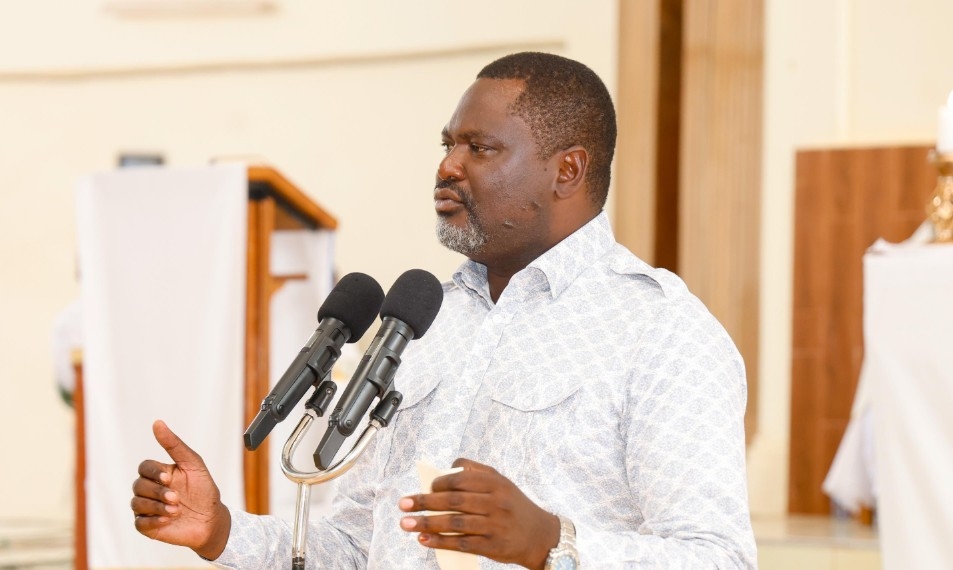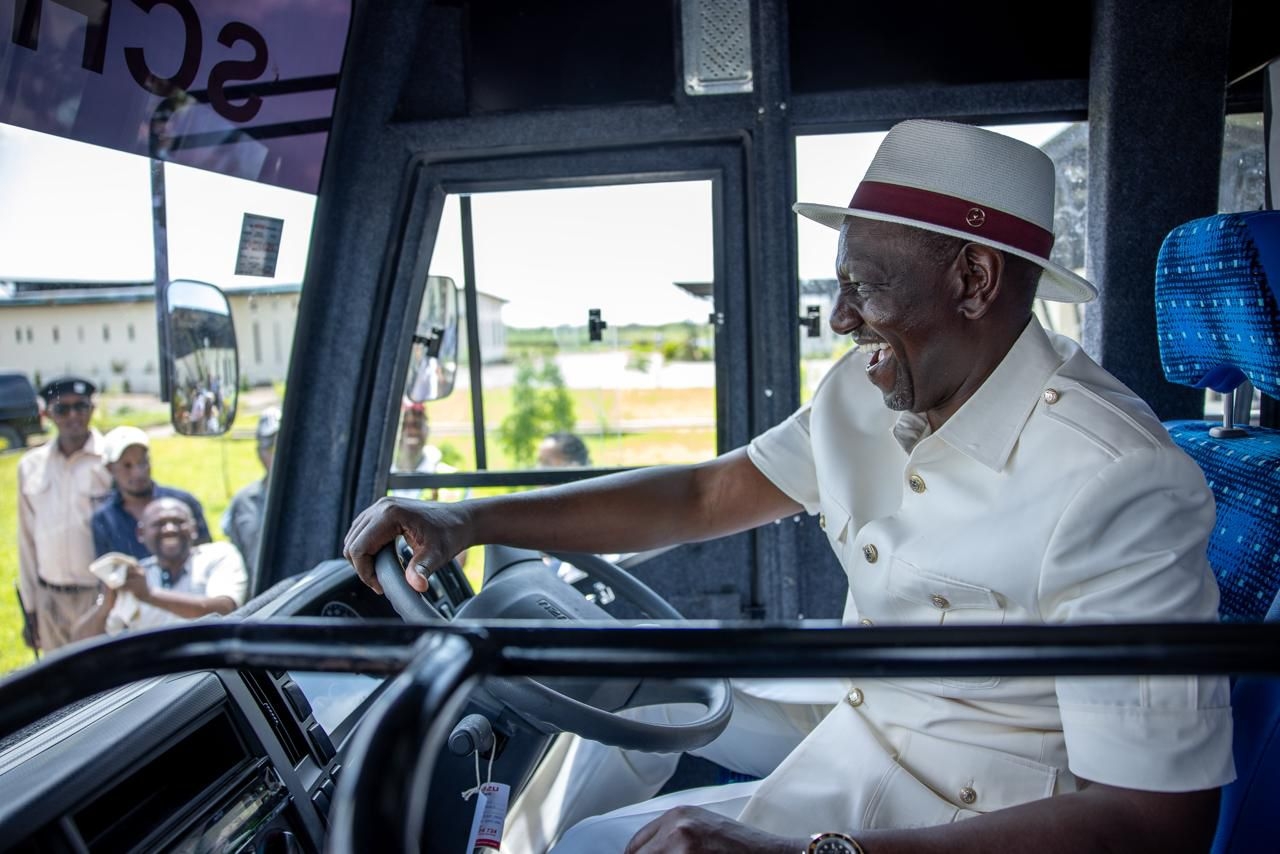“As fighting intensified I sensed a cold feeling in my right leg as a burst of machine-gun fire hit me. It was not painful, just numbing. I returned fire and changed cover in order to continue engaging, but the sniper shot me yet again this time twice in the hip with the bullets tearing through my jungle fatigues,” these are words of Captain Beauttah Suba as he recounts an encounter with al Shabaab.
Captain Beauttah Suba is looking forward to the 2020 Paralympic Games in Tokyo, Japan. He will be heading the military participation in the August 25- September 6 games.
Suba, the Defence Headquarters-based ambassador for Persons Living with Disabilities, has a chilling story on the battlefield as highlighted in The Soldiers' Legacy.
February 18, 2012, is a day etched in the soldier's mind. The al Shabaab was, as is, the enemy to beat. The Somalia-based militants were determined to inflict maximum punishment on KDF.
From his base, amidst intense gunfire, Suba radioed his OC (commanding officer) informing him of the situation.
“I requested for immediate deployment of the Quick Response Force from Badhadhe. By now I had identified the direction of the heaviest gunfire. I aligned my weapons accordingly to suppress the enemy,” Suba who was promoted to captain after President Uhuru Kenyatta awarded him with Silver Star Medal in 2014, recalls.
Badhadhe was KDF's Forward Operating Base in Southern Somalia.
The captain, light-heartedly says he had not had a bath for a fortnight. This is common on the battlefield. Bathing, sleep and eating are often disregarded. He had just participated in a similar operation.
The next 376 days were especially difficult. He would be maimed by the al Shabaab to the extent that he would be taken care of by other people.
Major Rashid, the officer commanding 20 Parachute Battalion, was determined that his team should maintain an offensive posture.
That day - a Saturday - he asked Suba’s platoon to patrol the Badhadhe-Koday road. Another platoon was to patrol the Badhadhe-Kismayo road.
Lieutenant Hirbae Nkaduda’s platoon, along with a troop light armour, formed the Quick Reaction Force – QRF and remained at the Forward Operation Base to reinforce any one of the two patrols if need be.
“I departed with my troops for the mission and maintained situation awareness all the while. This was my company’s area of responsibility which I was required to secure and pacify,” he notes in the book.
He intended to patrol a stretch of 15km from the operations base. “A little over 10km to our destination, we bumped into an al Shabaab patrol base. As often happened, some of the al Shabaab fighters began to flee, abandoning their assets and exposing themselves to our troops’ fire.”
Many of the fighters were neutralised. "Having cleared the enemy patrol base, I updated my OC as required and reported that I was resuming the advance,” the decorated officer says in the book.
His platoon made it to the destination and began the return journey to their operation base.
Unbeknown to them, the terrorists had regrouped and laid an ambush along the thickly forested route to Badhadhe.
The militants had circled his platoon and strategically stationed snipers.
“In a flash, the ambush was sprung and heavy gunfire reverberated. Despite being surprised by the enemy, my platoon did not lose its footing,” Suba states in the book.
They were was shot at. Major Rashid released the Quick Response Force to the scene when he was notified of the situation.
Suba requested for air support from the Manda base. “Two things happened thereafter. First the QRF unexpectedly hit a dead end, compelling the force to return to the last known point so as to take an alternative approach to the ambush site.”
Suba's platoon kept fighting as the aircraft that had come to evacuate him could not land due to intense gunfire. Nor could the forest canopy allow it.
“I had been hit. My runner noticed blood oozing from my foot and informed me. Amidst a hail of bullets, he reached his breast pocket and retrieved a first aid kit and begun to address the wound to stop the bleeding. Another soldier nearby helped me to change cover to evade the enemy’s fire and I asked him to pray,” Suba recalls.
The change of position helped him to clearly see the battlefield and where the fire was most intense.
He ordered the general-purpose machinegun crew to zero in on the position to suppress the enemy. With utmost precision, the crew silenced the enemy.
The battle tilted in their favour after the arrival of the quick response force.
He was evacuated to Badhadhe in an armoured personnel carrier alongside his runner, private Michael Nugi, and radio operator private Bernard Kirui.
When both platoons returned to the operations base that afternoon, Sergeant Sagar reported that all the soldiers were safe and accounted for.
"At around 6pm, an Army helicopter evacuated me to Manda Base. My right leg had been shuttered. It danglied loosely. It had been secured with a wooden plank at Badhadhe,” the captain says.
Suba had begun drifting in and out of consciousness. However, Captain Njoroge kept stroking and kept him talking to maintain consciousness.
From Manda, Suba was flown to Moi Air Base, Nairobi, from where he was rushed to Defence Forces Memorial Hospital.
The trip to the hospital in an ambulance along Juja Road was "the longest journey I have ever taken,” the captain says. This was because of the traffic jam. “The driver looked at me and encouraged me to be strong."
Suba arrived at the DFMH emergency department at 9.32pm. It had taken 62 minutes to cover a distance of less than 10km.
"For about six months, I received specialised treatment. The doctors retrieved three bullets while two remained lodged in delicate parts of my body,” he says in the book.
He gradually learnt to walk again.
He recalls excitedly: “One day I woke up from my deep slumber and found the Army Commander, Lt General Joseph Kasaon, standing by my bedside. He engaged me in a conversation, informing me that he had come to find out how I was fairing.”
He adds, “This was a very fulfilling moment to have my superior commander visit me at the hospital”.
He was discharged only to be readmitted days later after he relapsed to severe back pain. His right leg had become significantly shorter than the left one.
“This only meant that I would never run again and I would be moving on crutches.”
Shoes with modified soles were later fabricated for him to be able to walk.
“When I finally resumed duty, I was deployed to a busy office where I would continue serving. After President Uhuru Kenyatta awarded me with Silver Star Medal in 2014 I was promoted to captain,” Suba says.






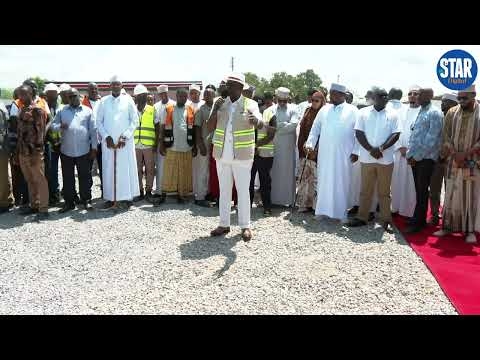
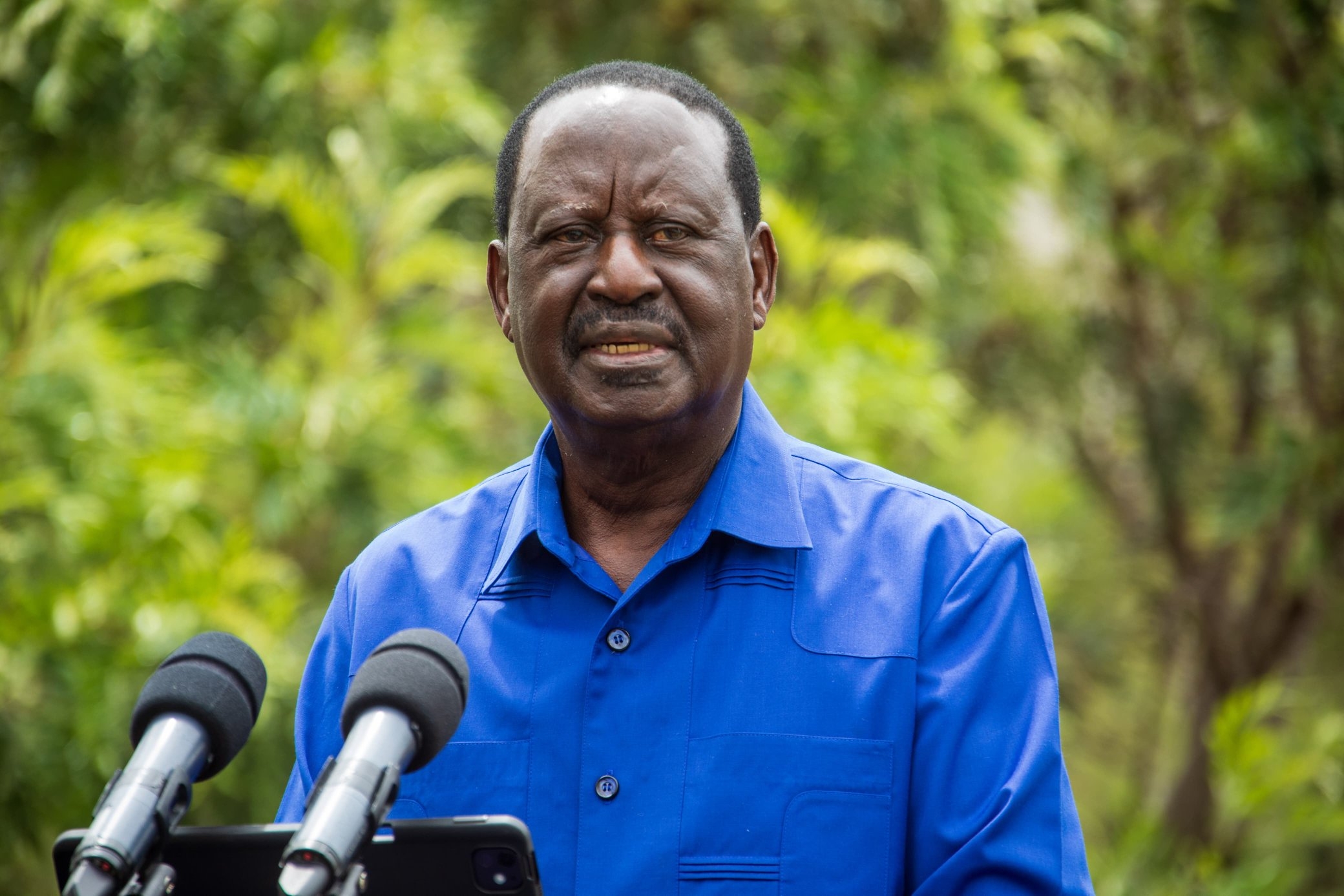
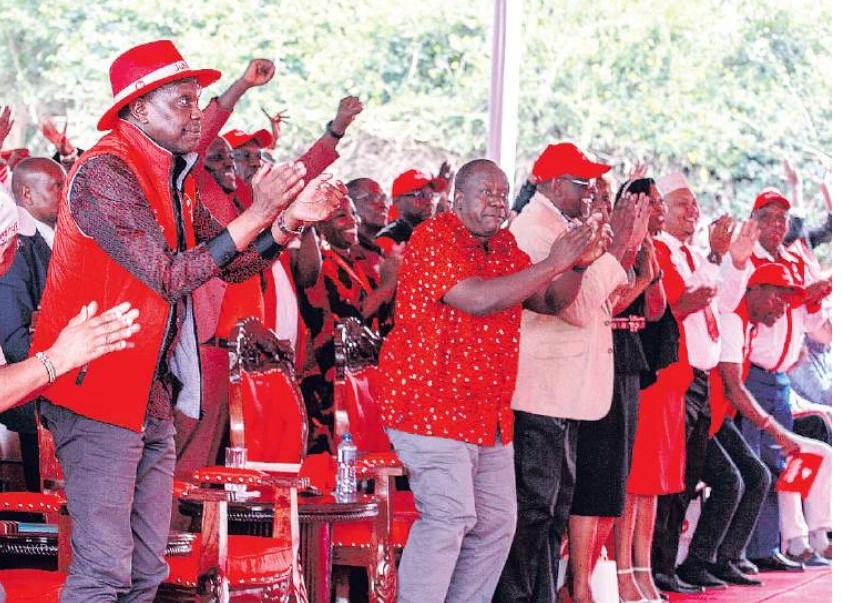
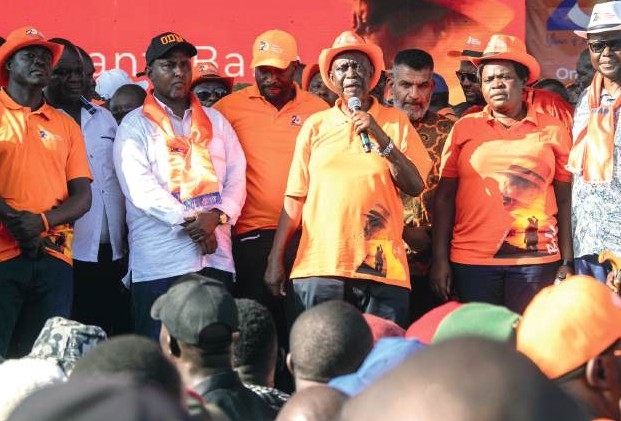
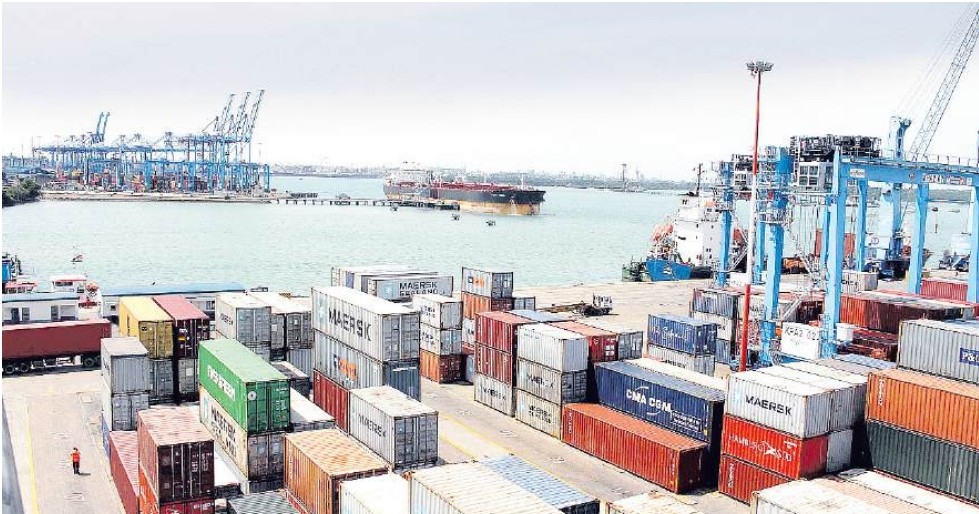
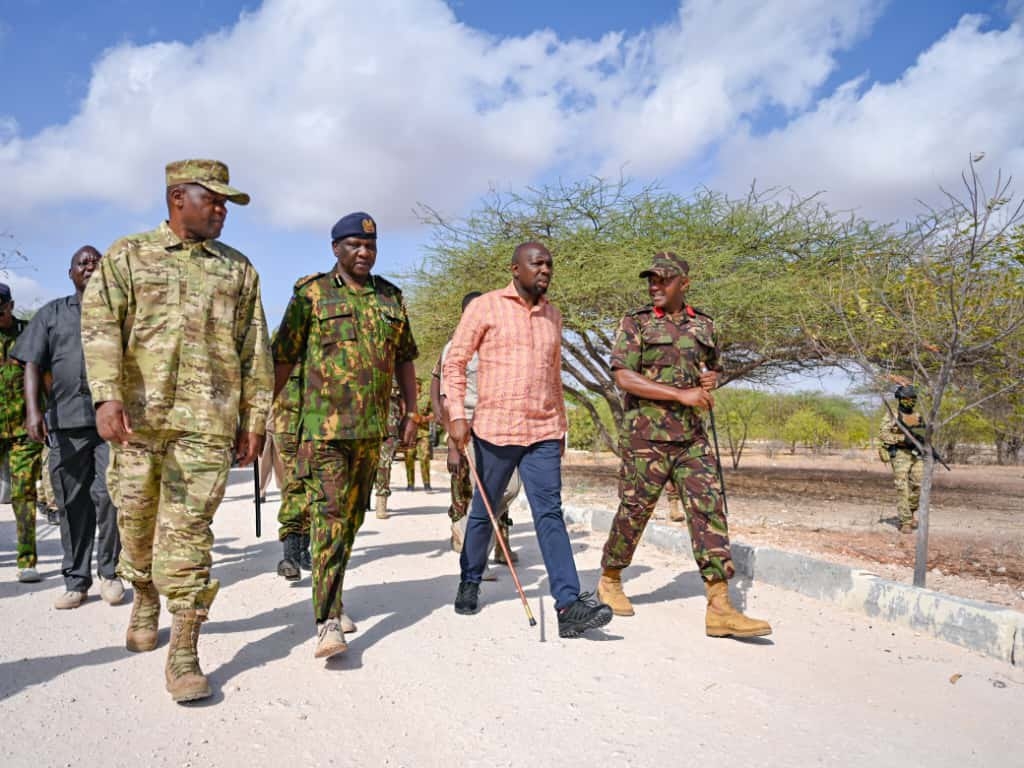
![[PHOTOS] Ruto present as NIS boss Noordin Haji's son weds](/_next/image?url=https%3A%2F%2Fcdn.radioafrica.digital%2Fimage%2F2025%2F11%2Ff8833a6a-7b6b-4e15-b378-8624f16917f0.jpg&w=3840&q=100)

